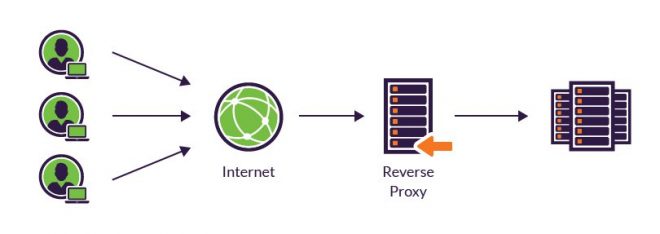In a world that is becoming more digital, the importance of online privacy, security, and speed cannot be overstated. As we travel through the expansive internet, many users are turning to proxy servers as versatile tools that can enhance their online experience. So, what is a proxy server, and how does it function? From routing Omeka through different network paths to disguising user identities, proxy servers are vital in how we engage with and retrieve online content.
Proxy servers serve multiple purposes, addressing diverse requirements, be it for enhancing security, ensuring anonymity, or boosting web performance. As both organizations and individuals aim to safeguard their sensitive data and reach geo-restricted content, understanding the various types of proxy servers and their applications has become essential. This article investigates the numerous applications of proxy servers, highlighting their benefits, implications, and how they can be a game-changer for both personal and professional online activities.
Grasping Proxying Servers
Proxies act as intermediaries connecting a user's system and the internet. When a client queries information, the proxy server relays the query to the target server, acquires the content, and sends it to the user. This process assists hide the client’s IP address, providing anonymity and enhancing online privacy. By a proxy server, individuals can retrieve information that may be limited in their geography or internet access.
There are different types of proxy servers, each intended to cater to particular purposes. For example, HTTP proxy servers manage web traffic, while SOCKS proxies can handle various types of information, offering more options. Transparent proxy servers leave unchanged queries or responses, making them valuable for storing. Grasping these different types is essential for choosing the right proxy for your needs, whether it's for secure browsing, information access, or data scraping.
Employing a proxy server can improve protection by offering an additional layer of safeguarding against online threats. Proxy servers can screen harmful requests, block direct approach to a client’s system, and even offer encryption capabilities to secure data transmission. As online threats become increasingly sophisticated, the role of proxy services in improving both protection and privacy online cannot be underestimated, making these tools valuable tools in today's digital landscape.
Benefits and Risks of Using Proxies
Proxies offer many advantages, particularly in improving internet privacy and security. By directing internet traffic through a proxy, users can conceal their IP addresses, making it difficult for trackers to locate their IP addresses and online actions. This is particularly important for individuals seeking to maintain anonymity while browsing or engaging in sensitive transactions. Furthermore, proxies can enable secure access to geo-restricted content, allowing users to bypass censorship and access resources that may be blocked in their area.

However, there are risks associated with the use of proxies, particularly free proxies. Many free proxies do not provide adequate security measures, which leave users exposed to data interception and threats. Additionally, these servers can record user activity, compromising the very privacy they are supposed to protect. Users must be cautious and conduct detailed research to make sure they choose a reputable proxy service that prioritizes user safety and data protection.
An additional consideration to take into account is the potential for reduced internet speed when using a proxy server. While certain proxies can improve performance through data caching and optimized routing, others may introduce latency due to bandwidth limitations or congestion. This variability can impact web activities, such as streaming or gaming, where speed is essential. Therefore, balancing these benefits against the risks is essential for users who want to leverage proxy servers effectively for their specific needs.
Proxy in Business and Gaming
In the field of business, proxy technology serve as vital tools for enhancing online security and maintaining operational productivity. By sending internet traffic through a safe server, companies can guard confidential data from potential threats and ensure that confidential communications remain protected. This level of defense is crucial for organizations contending with sensitive information, as it drastically reduces the likelihood of unauthorized access and data theft. Furthermore, using proxy servers allows businesses to track employee internet usage, which can help prevent distractions and enhance output.
Online gaming is another area where proxy servers play a major role, particularly in enhancing the overall online experience. Gamers often utilize proxies to lower latency and lag during gameplay, allowing for smoother sessions and improved functionality. Additionally, proxy servers enable players to access region-locked games and resources that may not be accessible in their geographical area. This capability not only enhances the gaming experience but also increases the variety of titles available to players, making proxy servers an essential resource in the gaming community.
Additionally, both businesses and gamers can reap rewards from the concealment provided by proxy servers. In high-stakes environments, maintaining anonymity ensures that sensitive business strategies are not revealed and that gamers can compete without fear of being hunted by rivals. By concealing IP addresses, proxy servers help protect the privacy of users, allowing them to conduct their online tasks with a greater sense of safety and liberty. Whether in a corporate setting or a gaming arena, the advantages of using proxy servers are clear and significant.
